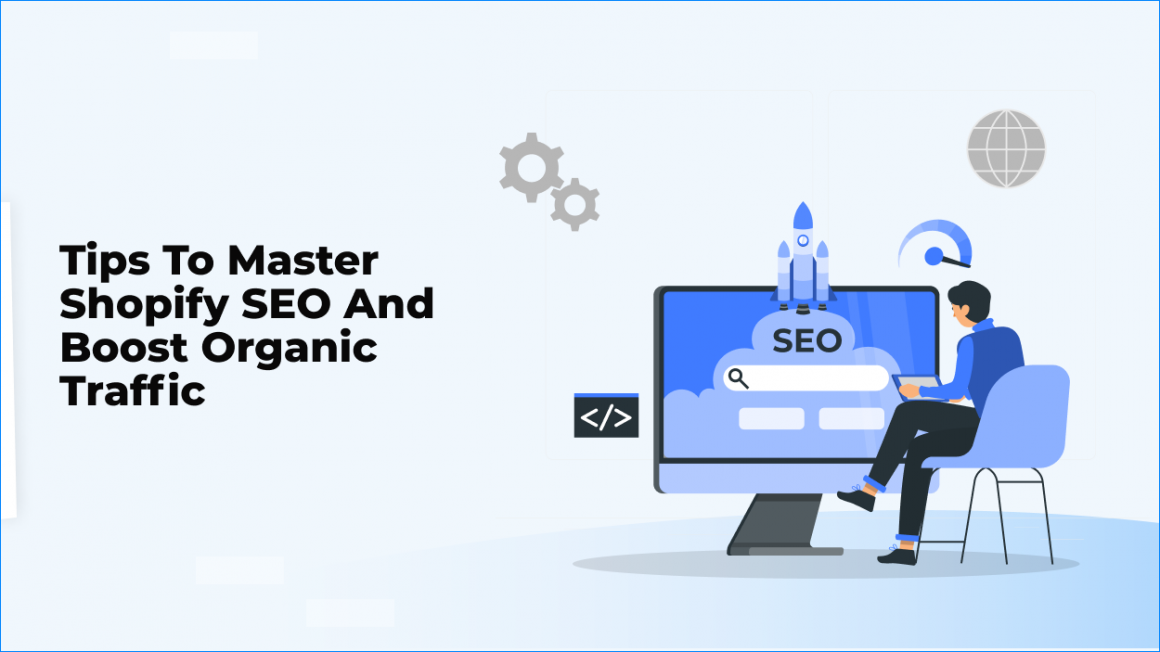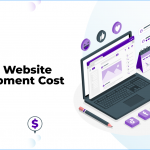Mastering Shopify SEO optimization is essential for boosting your online store’s visibility and driving organic traffic. In a competitive market, merely having a well-designed Shopify store isn’t enough; it needs to be easily discoverable by potential customers.
Effective SEO for Shopify involves optimizing your store to rank higher in search engine results, making it easier for users to find your products. Collaborating with a Shopify SEO expert can provide you with the specialized strategies needed to improve your site’s performance.
Professional SEO services provide the knowledge and resources to improve your store’s online visibility, guaranteeing consistent growth and higher sales. These resources range from technical tweaks to keyword research.
How Does Organic Traffic Work?
When people find your website through unpaid (“organic”) search engine results from Google, Bing, and other search engines—as opposed to paid advertising or other referral methods—they are referred to as organic traffic.
The ability of your website to rank well in search results, or to obtain organic traffic, depends on its use of relevant keywords, excellent content, and SEO best practices. You will require the help of Shopify SEO experts so make sure you hire good professional SEO services.
When consumers click on your link on the search engine results page (SERP), your site will receive more traffic if it ranks naturally for terms that people search for. Paid search advertising, on the other hand, demands payment to appear on a search results page.
Advantages of Organic SEO Traffic
Aligning your content with search queries is how organic search generates visits. Although it’s a long-term approach that calls for constant work, the results can accumulate over time. These are the benefits you will get when you get the help of an expert for Shopify SEO optimization.
- Economical expansion: Organic traffic is a cheap growth channel since it can increase website traffic without requiring you to pay for each click.
- Brand Awareness: Establishing brand awareness, visibility, and authority is facilitated by ranking for relevant search words and showing up prominently in results.
- Durable outcomes: While you establish authority, organic rankings can bring steady traffic month after month, while sponsored search traffic pauses and disappears.
- Higher-income: Increased organic traffic has the potential to increase revenue and return on investment (ROI) while maintaining profit margins, unlike paid advertising.
Here Are The Factors That Influence Organic Traffic
1. On-Page SEO
Optimizing web page elements to inform search engines that your content satisfies user intent for target keywords is known as on-page SEO. Among the crucial on-page SEO elements are:
- Headings on pages: Primary keywords should appear in titles, but they shouldn’t be overly long.
- URL arrangement: Short, keyword-rich, and simple for search engines to comprehend URLs are ideal.
- Headings: Content in heading tags has to contain pertinent keywords.
- Content: A well-written piece of content with naturally occurring keywords improves page ranking.
2. Technical SEO
Technical SEO tools can impact organic traffic in ways other than page-level optimization. Technical upgrades made to the entire site include:
- Website design: Search bots can more easily crawl your website if it has a strong information architecture and easy-to-use navigation.
- Adaptive website design: It is now necessary to have a mobile-friendly, responsive website—such as the responsive templates offered by Shopify—to rank highly on-site
- Website load time: performance. Improved site speed as a whole boosts organic rankings
- Safety & Security: SSL certificates, HTTPS, and further security protocols instill trust in search engines regarding your website.
3. Give Priority To Keywords and Content Planning
Users looking for relevant topics can be drawn in with an effective content strategy and keyword research. The following are many content variables to use in your strategy:
- Focus on the content that is targeted: Post blog entries and videos that are targeted at relevant keywords for buyers.
- Content that has been optimized: Make current content more search-intent and frequently searched for.
- Lengthy material: By covering relevant long-tail keywords you can increase the footprint of your keywords.
4. Link Building
Getting reputable websites to naturally link to your material via anchor text links demonstrates to search engines the authority of your writing. However, not every backlink has the same value. When creating links, keep the following things in mind:
- Relevance: Links from topically relevant websites in your field contribute to the establishment of authority, a measure of the overall quality of a webpage.
- Be patient and trust the process: Links from reputable, well-established websites lend authority.
- Popular source: Links coming from well-known, busy websites are more valuable.
- Variety: Links from a variety of high-quality websites appear natural to search engines.
- Text anchored: Strong ranking signals are transmitted by using diversified and organic anchor text.
9 Techniques For Boosting Organic Traffic To Your Website
1. Make appropriate content that focuses on appropriate keywords.
Utilize tools such as Google Keyword Planner to find high search traffic and commercial phrases that correspond with your items.
To address searchers’ intent and attract qualified leads, naturally incorporate important keywords into on-site content, such as blog posts and product descriptions. Additionally, you can improve or replace dated or sparse content.
2. Give content’s search intent top priority.
Analyze click-through rates, impressions, and user activity patterns to determine the main objectives and areas of interest of users who are searching for your target keywords. This will help you understand the searcher intent for those keywords.
Create material that responds to the inquiries and demands that search queries raise. By doing this, you may rank higher for terms with high commercial search intent, or search terms that strongly suggest the user is actively considering making a purchase.
3. Build a strong backlink profile.
Obtaining backlinks from other websites to your website strengthens your authority and relevance to search engines. To increase search ranks and organic search traffic, make an effort to obtain relevant links from high-quality websites. To develop links from respectable industry blogs and newsletters, employ PR outreach and guest posting techniques.
4. Increase the performance and speed of your website.
Search engines reward good user experiences created by mobile optimization and quick website loads.
Reduce bandwidth and give the speedy results people demand by optimizing hosting, removing superfluous code, and compressing images. To keep your ranks high, test your site speed frequently and establish performance targets.
5. Correct any technical issues with your website.
Crawl mistakes, broken links, and issues with mobile sites can all lower ranks. To enhance the effectiveness of organic search, find and fix any technical issues with the website. Create alerts to identify potential new mistakes.
6. Maximize engagement while on-site.
Clear navigation and an engaging content presentation encourage users to stay on your website longer, which indicates relevancy to search engines. To achieve this task a Shopify SEO expert will help you with the right knowledge.
To increase time on site, including pertinent links and persuasive calls to action (CTAs). Want your analytics tool to track important engagement metrics and find areas that could want improvement?
7. Analyze the competition.
Examine what well-performing websites in your niche are doing to achieve a high organic ranking. Examine their links, content, keywords, and optimization techniques to find new ways to outperform them in their SEO.
8. Identify and target long-tail keywords.
Specific long-tail phrases with less competition rank higher. To increase traffic, optimize for these search terms as soon as possible. In the long run, focus on more challenging short-tail keywords.
9. Stay updated with the latest SEO trends.
Search engine algorithms are always evolving. Continue to learn about new elements to incorporate into your strategy of SEO for Shopify to sustain high organic search traffic, such as expert authorship, content richness, and page experience.
Keep up with industry blogs and podcasts, and experiment with new methods as they appear.
Conclusion
In conclusion, mastering Shopify SEO optimization is crucial for increasing your store’s organic traffic and overall success. Implementing effective SEO for Shopify strategies ensures that your store is more visible in search engine results, making it easier for potential customers to find your products.
To achieve the best results, consider engaging with professional SEO services. A seasoned Shopify SEO expert can provide the insights and techniques needed to refine your SEO efforts, from keyword integration to site performance enhancements.
By investing in these strategies, you can significantly improve your store’s reach and drive sustainable growth in a competitive online marketplace.











